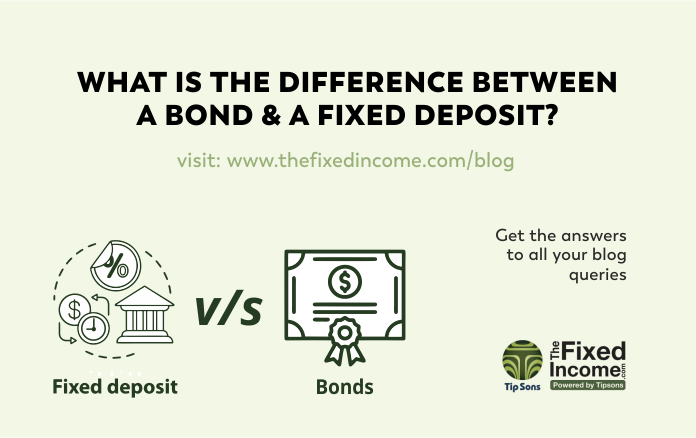Bonds and Fixed Deposits (Fd’s) are generally viewed as the two most well-known choices for risk-disinclined investors across the world. While the two bonds and FD’s are ‘fixed income’ instruments as in they offer interest income to investors, they contrast extraordinarily across different boundaries. It’s advantageous to teach yourself the subtleties of bond and fixed deposit investing to make an educated investment decision. It’s profitable to comprehend the subtleties of bond and fixed deposit investing to settle on an educated investment choice.
What’s the significance here?
With Fixed Rate Bonds, the ‘term’ is how much time you decide to lock your money away for, for example, 1 year. At the point when your Fixed Rate Bond term closes, your money ‘matures’ and you gain admittance to it. This is known as maturity.
Would the interest be able to rate change?
The interest rate of the account is fixed till the maturity of the account.
Would it be a good idea for you to put resources into a fixed deposit or an investment bond?
The accomplishment of any investment device relies upon how well it meets your prerequisites. When wanting to put resources into a fixed deposit or an investment bond, it is fundamental to assess the benefits and disservices of both these investment roads. Both FD and investment bonds are fixed-income reserve funds instruments. While FD interest rates are higher than investment bonds, investment bonds offer more tax benefits.
Both fixed deposits and investment bonds include saving a specific measure of money for a predetermined period. While FD interest rates are a lot higher than investment bonds, investment bonds offer more tax benefits.
Liquidity
Bonds are tradeable on trades and can hence be said to be more fluid. Notwithstanding, recall that interest rate developments can affect bond prices (particularly longer-term bonds), thus the liquidity comes at the cost of price unpredictability. Fixed Deposits, then again, can be removed rashly – even though they aren’t exchanged on the trade. The untimely withdrawals come at the cost of decreased interest.
Returns
The two Bonds and FD’s deal a fixed payout at predefined periodicities (except if the band being referred to is a zero-coupon one which is given at a markdown to its face value and matures at its face value). Be that as it may, Bonds offer the extra extent of procuring Capital Gains, as Bond prices fluctuate either founded on changes in market interest rates, changes in the creditworthiness of the guarantor, or both. FD’s are not tradeable on a trade, and subsequently don’t offer the extent of acquiring capital gains. It’s quite important, in any case, that bond exchanging isn’t everybody’s favorite, and an ignorant retail investor will be facing a major challenge using exchanging bonds without a satisfactory level of knowledge of the basics of the obligation market.
Security
You’ll see that most Bonds are obtained in nature, as they are supported by actual assets. In any case, assuming the credit rating of the responsible element weakens, the bondholder may not get opportune interest and head payouts – accordingly, it is prudent to check for credit ratings and stick to AAA, AA, or An evaluated bonds in particular. Upon the far-fetched occasion that an organization fails and its assets get exchanged, it is the bondholders who stand first in the pecking order. FD’s, then again, are unstable and not supported by assets.
Credit Rating
It is an order for Bond Issuers to get their instrument evaluated by somewhere around one rating office such as CARE, ICRA, or CRISIL. Backers are severe with regards to revelation necessities and will ordinarily not offer a rating without satisfactory data about the organization that the overall population are not conscious of. However, for FD’s those given by NBFCs must compulsorily be appraised; there’s no such command required on Bank FD’s. Ratings are helpful as they permit newbie bond investors to effortlessly assess the returns on offer considering the risk they are taking on simultaneously.
Taxation
Interest from Bonds just as FD’s are dependent upon income tax according to the tax slab of the individual (taxed “at the edge”). In any case, there are sans tax bonds given by the government, on whose interest no income tax is payable. Instances of a few forthcoming tax-free bonds incorporate PFC, REC, NTPC, IREDA, HUDCO, IRFC, and NHAI. The NHAI issue is relied upon to be sizable. If you decide to sell your bonds on a trade before maturity, capital gains will apply.



















